John-Paul “Jp” Jones is a native Iowegian, heavy blues recording artist and is the leader of the John-Paul Jones Group. The Artist is Member of the American Federation of Musicians, Black Rock Coalition, International Blues Foundation, International Singer-Songwriters Association, American Society of Composers, Authors and Publishers. Under John-Paul “Jp” Jones’ leadership, the John-Paul Jones Group has steadily established itself as one of Iowa’s most popular heavy blues acts. Formed over twenty years ago from the leftover materials of progressive rock band Jp’s Eternia, the band is rapidly gaining regional and national recognition. It boasts excellent musicianship, powerful stage presence, and a remarkable stage show with audience interaction/participation integrated throughout each live performance. A new collection of songs written by bandleader John-Paul “Jp” Jones entitled ‘Broke In Bridge City’ is set for digital and physical release on February 5, 2021. Recorded at CopperTop Studio Hut, the album offers a fresh look at life in Southeastern Iowa as told in story form from the perspective of a Black American.
- Can you tell us a little bit about where you come from and how you got started making music?
Prof. Jp: I hail from the Southeastern part of Iowa call the lake Rathbun area. My family and I identify as Black Iowegians because we are 9 generations and counting native Iowa residents. I am part of the 6th, our original patriarch was an escaped slave and Civil War (US 165th colored regiment) Veteran Curry Oscar Bunk Reed of Appanoose County Area. Like most kids I got my start singing in the living room. I picked up the trumpet at age 10 and switched over to keyboards about age 12 or 13. I discovered the guitar about age 14 and I haven’t looked back since. I would say that the influence of in-home music of immediate family and out of home music of school mates probably shaped my musical tastes the most in the beginning.
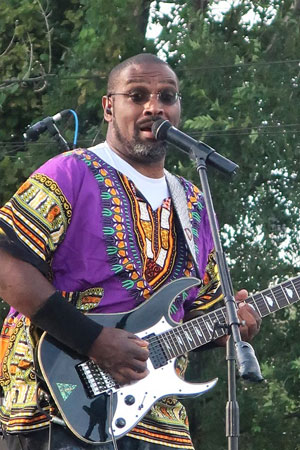
- On your latest album, apart from the lead vocals, you also take care of the guitar and bass work. Have you had formal training or are you self-taught?
Prof. Jp: On trumpet I had formal training which is how I learned to read music going about theory and harmony. As far as guitar and bass are concerned the closest thing that I have ever gotten to formal lessons was Doug Marks correspondence course called metal method. And getting my hands on every guitar bass magazine I could. I would love to say that I’m self-taught because I’ve never really had a formal lesson on guitar bass or keyboards. I however have taken college classes on improvised education in Harmony Theory and Orchestration as time over the years allowed for it. I’m a lifelong learner so I have no problem learning from a book which is how we did it in the days when I first started. I can’t imagine how having to YouTube as a beginner must be a wonderful tool.
- Who were your first and strongest musical influences that you can remember, and which contemporaries do you consider as vital to your craft?
Prof. Jp: Well I have to say first my cousin and my uncle were my first two musical influences that sparked it. My cousin Gary played guitar before I did by at least a decade so when we go to visit his house I would see his magazines laying around that kind of put the spark. And then my cousin Ernie Peniston, he was a singer and he traveled singing all over the world. A lot was also spark even though I didn’t want to be a singer. My Uncle Frank who lived out of state was a guitar player and he was also an inspiration. Now for me it starts with Chuck Berry and it ends with myself, as far as influences go on the guitar I have a lot of influences for different reasons but Chuck is where it probably started for me. To be honest with you, contemporary artists I don’t listen to very many of them. I can tell you what’s in my CD changer right now, and yes I still use CDs. Kevin Burt, Christone Ingram, Anita White, The Boys, Avey-Grouws Band. I’m a big supporter of Iowa musicians and artists as well as black artists especially. But I would be remiss not to mention those artists that helped shape my style. Chuck Berry, Bo Diddley, Howling Wolf, Willie Dixon, Big Mama & John Lee Hooker… but also when I discovered guitar it altered my path… Jimi was the first Les Paul, Robin Trower, Billy Gibbons, Jon Butcher, Greg Howe, Rory Gallagher, Tony MacAlpine, Al Dimeola. I can find influence in any style and inspiration from any human being. Currently I would say that Roy Weissman, Frank Zappa, George Clinton, Berry Gordy, James Brown, Zakk Wylde and Steve Vai have best shaped how I modeled my music business. Mainly I have taken books out of their personal accounts on how to run a band and operate an entertainment business. And I created my own.
- What do you feel are the key elements in your music that should resonate with listeners?
Prof. Jp: Number one I feel I’m a very normal human being with a very unique and extraordinary background due to my geographical location and ethnicity. Those two elements I believe allows me to write songs that can relate to anyone. If you are a fan of great guitar coupled to great rhythm plus a cool story line then I believe my songs will resonate with anyone. If you like guitars they are there. If awesome drums are your thing it’s there. If you like direct and cool bass lines here they are. If you like vocals that are not screamed at you, but have that element of innocence and direct real quality like a Phil Lynott, Jimi Hendrix, or Big Mama, they are there. There is something for everyone, regardless of age, ethnicity or gender. But it still maintains the Heavy Blues integrity throughout.
- For most artists, originality is first preceded by a phase of learning and, often, emulating others. What was this like for you? How would you describe your own development as an artist and music maker, and the transition towards your own style?
Prof. Jp: Yes it was…I don’t know if you remember Columbia House but why I started playing I started ordering from them. I lived in a part of Iowa so it wasn’t like you had a record store, we had a small department store that had records. I first started trying to emulate Miles Davis Dizzy Gillespie Chuck Mangione and Louis Armstrong on trumpet that actually was probably the first of my real training that taught me to play by ear and I emulated those guys as best I could. Well I moved on to guitar the way I learned was through like I said before Doug Marks Metal Method, which had this one tape called riffs. He did not tell you where the riffs came from… you just learned them without knowing their origin… Then as I was learning songs and playing in bands. I could better learn them. Please understand these lessons were basically a booklet and a cassette tape. That was it. The reason why I feel I developed a very original style of playing has everything to do with the trumpet lines and an inability to take formal guitar lessons so everything that I learned I learn basically by ear and mapping it out myself, and you can never get accurate with that so you develop a Style by poorly imitating your influences. Early on Jeff Beck, Al DiMeola, Ritchie Blackmore, Jimmy Page, George Benson, Jimi Hendrix I tried to tackle… well because I did not know any better. I have never been able to truly discipline myself to want to play note-for-note on anything even to this day. I look at songs as rhythm, harmony and melody. And even if it’s a cover I take a jazz approach to the arrangement of every song meaning. You can mess with it as long as you keep the major themes recognizable if you so choose.
- Do you ever consider writing a song with current musical trends, formulas or listener satisfaction in mind, or do you always focus on your own personal vision and presuppose that it will be appreciated by a specific audience?
Prof. Jp: I could never follow trends, as my songs come from a place of being biographical or autobiographical. I write from my own observation and experience. As you know this forms your own perspective. My songs are a reflection of my perspective on life. I release them with the same intention that Zappa said. “I make music to those who consume it”. I’m never worried about those who will not consume it nor like it. It’s definitely WYSIWYG with me. Take it or leave it, my music is me.
- Could you describe your creative processes? How do you most often start, and go about shaping ideas into a completed musical piece?
Prof. Jp: Sure I could try. I don’t really feel I’ve got a formula, maybe a process. My ideas generally always start with a bass riff. 100% of the songs on “Broke In Bridge City” a bass riff starts the creative process. I might come up with the bass riff on an acoustic guitar but the bass riff is always where I start. Because we are a three piece band the bass is the driving force AND the glue for our live performance. So I write for myself, but I arrange and record for reproduction on the stage.
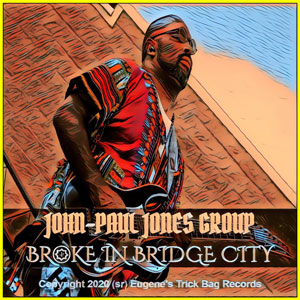
Do you usually start with a rhythm, a narrative in your head, or a melody?
Prof. Jp: I continually record melody and riff ideas onto my phone. I will mimic anything locally guitar bass drums and keep note of it along the way as well as lyrics and song themes.
- Could you describe how the album ‘Broke In Bridge City’ came into being initially?
Prof. Jp: Actually the title track I wrote in 2018. It’s been a part of the set list since then. Mainly all the songs came together during the Covid-19 pandemic. With all of our shows and 2020 being postponed, rescheduled or canceled. I had some unexpected time on my hands so I decided to write new songs and record an album. Concept is about our journey through life and about being in a good place, but during a bad time.
9. How would you describe the overall sound of the album to any potential new fans?
Prof. Jp: Authentic Heavy Blues
- Did you use any particular effects, instrumentation, and/or recording techniques on ‘Broke In Bridge City’ to create your raw vintage blues-rock sound?
Prof. Jp: Glad you asked. Actually what we did was marry old school mixing techniques from the 40s, 50s and 60s with new technology which included digital boards from Midas Behringer, and guitars, bass and drums were tracked initially on my digital workstation which is Mixcraft Pro 9 through a Behringer X32 board. Stems were sent overseas to Chris, who worked through his board and Pro Tools. The new drums were then flown back to me via the cloud and I re-recorded all my parts through my gear. Angeliki mixed all the Reaper and The Box at her Studio. The key to the sound is to ignore everything we learned about recording post 1988. If you want a vintage sound you need to use vintage recording techniques, not just go buy some old amps and use the modern techniques. Also, as the producer I put a self-imposed limitation on recording and mixing. No Auto-Tune, no electronically fixing vocals, no time alignment of drums. If something didn’t sound right we did it over. This is what happened in the 1940s and 50s. We limited the tracks in a way that made us use the digital audio workstation like it was a 24-track tape or two 24 track tapes synched together. I believe that’s what gave us the sound that I heard in my head.
- Does the John-Paul Jones Group work with an established set of collaborators, or do you switch crew according to the project at hand?
Prof. Jp: Live, it can be a revolving door, but currently the live band consists of David Bruce on drums and Steven Patterson on bass guitar. I prefer to use Iowa musicians and crew for all live concert productions. Mainly due to logistics and because I support my own. John-Paul Jones Group operates with a “revolving door” instead of a “broken bridge” policy. You’re welcome to leave, pursue other things and come back if there’s a slot open and we are in need of your services and talents. All concerts are recorded with the live band of the season, for future potential video or audio release. For this recording project I stepped out of my box and hired remote mix engineer Angeliki Mourgella and remote session drummer Chris Barber. Angeliki who is originally from Greece actually mixed the album in London. Chris re-recorded my rough drum tracks in a studio in Sheffield UK.
- Are there any interesting behind the scenes anecdotes from the recording sessions for ‘Broke In Bridge City’ that you can share with us?
Prof. Jp: One of the most interesting things in my opinion about recording this record was using two different people in a collaborative effort and then trying to describe how I need things to sound. The time shift difference was always strange Angeliki would work at a time when I was asleep so I would wake up early to catch her next version what about 5:30 in the morning. One time we had a song mix that Angeliki sent back to me and it sounded horrible, drums all over the place, it just did not sound like the track that I uploaded to her.Took me awhile to figure it out and what it ended up being was there was a ghost backing track that was mislabeled which was a rough mix from before and somehow it was labeled as a drum track and she mixed it in there thinking it was supposed to be there. It made me laugh because it also made me to start to pay a little closer attention to my stem titles haha. She said it sounded different but thought it was how I wanted it which is the true talent of an engineer to allow the producer to send the tracks and just make whatever you’ve sent sound good. I recorded all of my tracks in isolation so it wasn’t really a whole lot of what I call publically interesting things going on.
One thing that I did do, but I recommend to anyone who’s a singer working in isolation. I brought in an extremely talented vocal coach when I was having trouble. Her name is Tina Hasse Findlay. I’ve worked with her before. She is very good at Project based coaching when I couldn’t nail the song. Tina would drive down from Des Moines and we would spend an hour going over it. Then I would record it and usually it was done. I recommend that process to anyone trying to record something in isolation. Bring someone in that you can trust, with ears to hear what you’re trying to do, and the knowledge to help you get there. I think we did that on two songs.
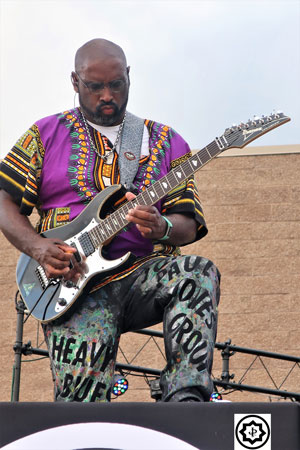
13. What were the main compositional, performance, recording, and production challenges you came across on the album?
Prof. Jp: The toughest challenge was being patient. I’m learning to come up with a process allowing a collaborator time to do their thing. Most of the time they completed their task a bit sooner than was expected, whereas I always felt a little under the gun to make sure they were given their proper stuff within a quick time period.
- Is there a particular song on ‘Broke In Bridge City’, on which you feel you delivered your most perfect performance, technically and emotionally, and which came out even better than you initially expected?
Prof. Jp: Oh I don’t think there’s such a thing as a perfect performance technically or emotional just some will move you better than others, and on some days you play a little better than others. I really think that Blue Ruin right now comes close and equally Blood Sugar Blues, because those two songs were written during a pandemic they are a reflection, one about friends lost, the other about my everyday battle with Type II diabetes.
- On the other hand, which song on the album would you consider the most personal and dear to you, lyrically?
Prof. Jp: That has to be Youth Is Wasted On The Young, which is about some tragic losses that have happened in my life. The song is 25 years old. I wrote it 25 years ago, and it is so relevant and potent today in reflection of what’s going on in the world with the young people off today. Things are different but they haven’t changed.
- Apart from the aforementioned songs, in your opinion, what would you consider particular highlights for fans to watch out for on the album?
Prof. Jp: You know each of the songs on this album have something for everyone. I believe that of all the songs on this album, each one will reach someone. So I’m telling you that you have something on this album no matter who you are, where you come from, how much money is in your pocket. The music’s not going to care and you will find something that will resonate with you.
- In retrospect, would you affirm that ‘Broke In Bridge City’ completely reflects your initial artistic vision for the album, and that its final production came out exactly as you intended?
Prof. Jp: Yep that’s exactly the way that I intended to be. This stuff’s not slopped together, it’s got intention and purpose. That purpose is to tell my story and express my observations/experiences from my own personal and unique perspective.
- Besides being an expression of technical artistry, personal narrative and pure entertainment, what’s your view on the role and function of music as a political, cultural, spiritual, and/or social vehicle?
Prof. Jp: Recorded music is a snapshot of observational history. The minute you record something do you have put your thoughts emotions feelings on display for the whole world to see. The importance of that is it’s just another wonderful way to connect with other human beings. Songs don’t have to be overtly anything political, emotional or anything like that to trigger someone’s emotional or intellectual response, just something that’s within them. You could deliver direct or indirect messages that inspire others to do or to think. That’s the beauty of music.
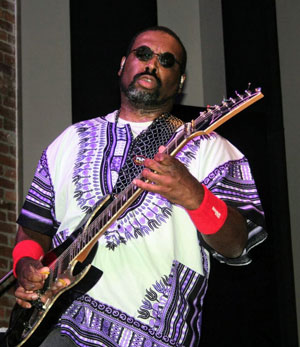
- What would you consider a successful, proud or significant point in your career so far?
Prof. Jp: First and foremost raising three wonderful children to adulthood, while pursuing my dreams as a single father. Then it’s completing this album. I am proud of these songs because we captured everything I have tried to accomplish from both a technical and an artistic perspective.
- What do you find most rewarding about what you do?
Prof. Jp: I’m best at expressing myself with a guitar and lyrics. What makes it so rewarding for me? Most of the time and conversation my feelings cannot be let loose 100%, but with a guitar in my hand that changes and that’s the most rewarding thing, to be truly free and emotionally open, through playing.
- Do you have a specific vision or goal set in your mind that you would like to achieve in 2021?
Prof. Jp: Yes! I want to go out and present these songs live, to the world. I also want to continue with my efforts to support veterans service clubs through our Patriot’s Picnic Concert Series, and also to collaborate with my brothers from Iowa, Ernie Peniston and Kevin Burt, with a concert series that we are working on called the Iowa Soul Brothers Revue which will feature 3 of Iowa’s most Authentic Black Blues Artists on one stage. These are three uniquely different styles of blues, but still authentically part of Black American Blues Culture. I also may release a concert DVD of performances from 2018 and/or 2019. Only time will tell.
22. Is there anything else you would like to share with our readers and listeners?
Prof. Jp: Yes I would. I believe in education obviously…For this release I have pledged $0.50 of every album shipped to go towards a cause near and dear to my heart, which is a the REC-TERET Library Fund, which will provide books for students of the IHCC-Electrical & Renewable Energy Technology Program here in my community. This program changes lives and 85% of the students are considered low income. I am trying to raise an additional $30,000 for this fund which will supply books for 10 students annually. So purchasing this album also will help a person in need succeed in life. The gift of education has a return that is invaluable.
- Where can someone go to follow-up with John-Paul Jones Group or get the “Broke In Bridge City” album? And what formats will it be available on?
Prof. Jp: You can visit our website and subscribe to our newsletter to keep up with us. https://www.johnpauljonesgroup.com/news.html. You can pre-order the album in LP or CD format. The best place to get it from the Blue Nexus Music Store online at https://bluenexusmusic.limitedrun.com. If you want to see the band live or connect via Instagram or YouTube. search johnpauljonesgrouptv. On YouTube on your Roku John-Paul Jones Group TV in your search bar. The album is set to release February 5th, 2021 on Eugene’s Trick Bag Records to all major online retailers. If you get the digital version you automatically get the CD for shipping cost only. Pre-Orders are being taken now. You can also listen to the music exclusively on the Jango Radio Network at https://www.jango.com which is the one of the best internet radio services worldwide.
I want to thank you Rick and everyone at JAMSPHERE MAGAZINE for taking the time to talk to me. It’s been a blast.
OFFICIAL LINKS: WEBSITE – FACEBOOK – TWITTER – REVERBNATION – YOUTUBE
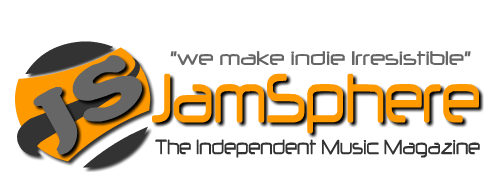
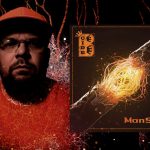

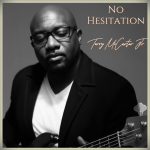
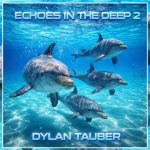
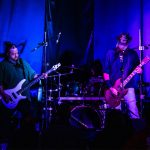
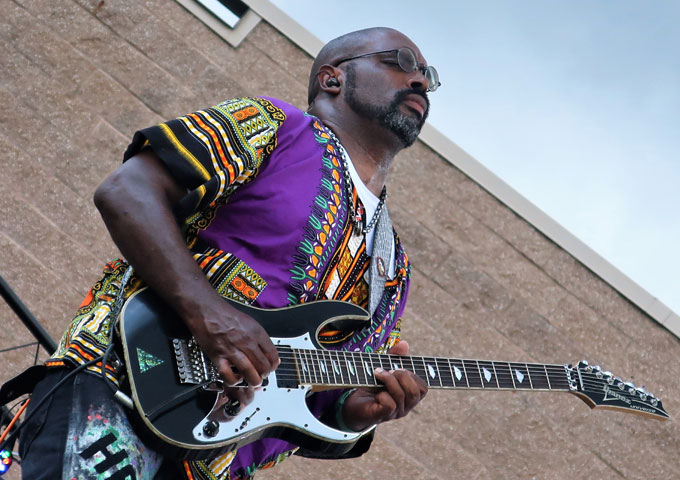
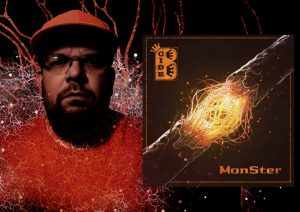
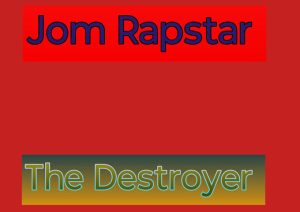
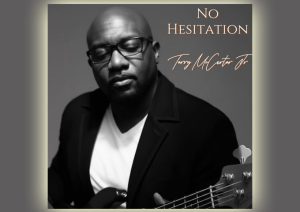
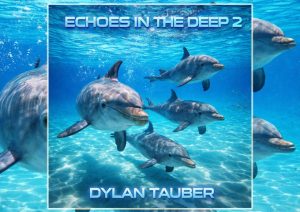
More Stories
Full-Circle Moments: Terry McCarter Jr. on ‘No Hesitation’, Family, Faith, and his Creative Growth
“Hay Zeus”, Heavy History: Ty Bru on Legacy, Layers, and Letting Go at 20 Years of MTTS
The Cosmic Factory on 15 Years of Psychedelic Alchemy and the Making of ‘Lab Grown’